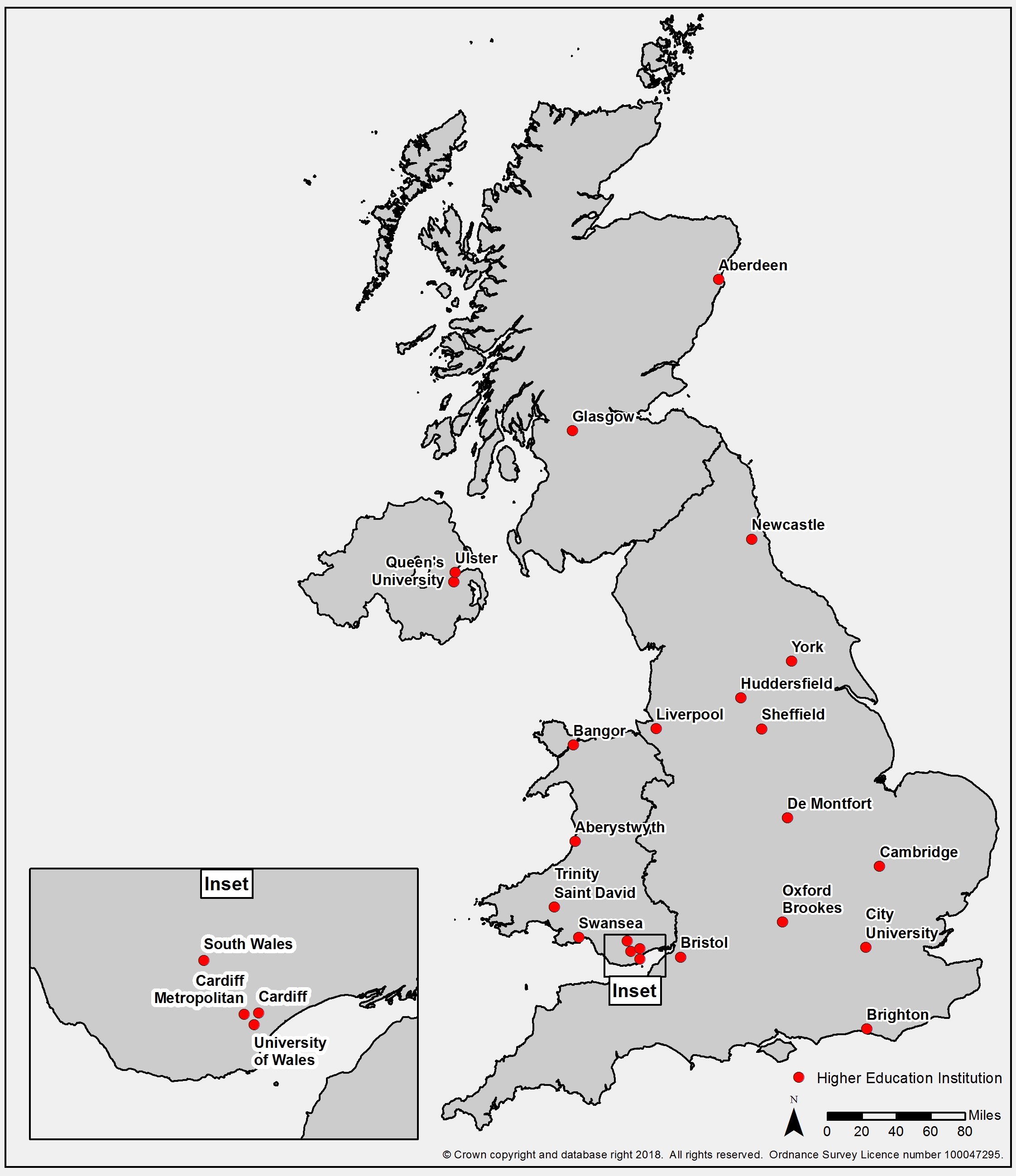The UK Research Excellence Framework (REF) is a process of expert review that evaluates the quality of research in UK higher education institutions. We are aware of what the REF means for academic researchers and their institutions, and are keen to support academics in their engagement with the Assembly. For further information on key academic engagement activities at the Assembly, please see our dedicated webpages.
For the first time in 2014, the REF exercise included the assessment of non-academic impact generated from the research. UK higher education institutions submitted their evidence of research impact in the form of ‘impact case studies’, which are now publicly available as a searchable database. For details of the impact generated by Welsh universities only, please see the King’s College London analysis of REF2014 case studies as commissioned by the Learned Society of Wales.
The impact case studies that clearly outlined engagement with the Assembly were analysed to understand how academics were achieving impact (as submitted in 2014). Of the 6,637 non-redacted REF Impact case studies for the whole of the UK available on the online database, there were 36 that clearly outlined engagement with the Assembly. These 36 impact case studies outlined 37 impact events - two separate engagement events were outlined in one of the case studies.
It should be noted that the 2014 REF exercise only covered academic research carried out between 1 January 1993 to 31 December 2013, so predates the Assembly’s more recent academic engagement initiatives. This analysis does however provide a useful benchmark against which future levels of engagement can be compared. It also provides some good examples of where academic research has had a direct impact on legislation/policy scrutiny and development.
Who engaged?
- Case studies spanned all four main areas of science as defined by REF: Life Sciences, Engineering and Physical Sciences, Social Sciences and Arts and Humanities. Research submitted under ‘Social Sciences’ contributed the majority (58% of 36) of case studies that clearly outlined engagement with the Assembly.
- Case studies were submitted to 19 of the 36 possible science discipline categories as defined by REF. The most common categories were ‘Business and Management Studies’ and ‘Law’, with 5 impact case studies each of the 36 that clearly outlined engagement with the Assembly.
- The majority (50% of 36) of case studies that clearly outlined engagement with the Assembly were submitted from Welsh higher education institutions. Case studies were also submitted from England (39%), Scotland (6%) and Northern Ireland (6%).

Which parts of the Assembly did academics engage with?
- Academics engaged with seven different Assembly locations: Assembly Committees, Assembly Commission, debates, events, individual Assembly Members, professional services and research service. For two of the impact events, the location of engagement was unclear.
- With 26 of the 37 impact events, Assembly Committees were the most frequently reported location of engagement. Research submitted under ‘Social Sciences’ contributed the majority (58% of 26) of these impact events.
- Social Sciences engaged with the greatest range of Assembly locations.
In what ways did academic researchers engage?
- Nine ways of engaging were identified: giving evidence, being cited directly, research presented via a third party, being a speaker/presenter, being cited indirectly, co-author/report, being a specialist advisor, conducting a secondment and attending a meeting.
- With 13 of the 37 impact events, giving evidence was the most frequently reported way of engaging. Research submitted under ‘Social Sciences’ contributed the majority (54% of 13) of these impact events.
- Social Sciences used the greatest range of ways to engage.
What outcomes were achieved from engaging?
- Eight of the 36 impact case studies outlined policy or legislative outcomes. Seven of these outcomes could be traced to engaging with an Assembly Committee.
- Legislative outcomes included: revising the decision to introduce legislation on access to inland water (PDF, 381KB), enhancing the powers of the Commissioner for Standards (PDF, 208KB), and including an amendment (PDF, 47.6KB) on the Rights of Children and Young Persons (Wales) Measure 2011.
- Policy outcomes included: recommendations for the transplant ‘opt-out’ system (PDF, 167KB), creating the ‘Library of Wales’ (Welsh literary works published in English, PDF, 55.4KB), recommendations on the establishment of a separate Welsh jurisdiction (PDF, 164KB), early screening for dyslexia in primary schools (PDF, 235KB) and a new system of publishing school performance information (PDF, 298KB).
For further information on this analysis, including the caveats to the data, please see our new Research Briefing: An overview of REF 2014 impact case studies that refer to engagement with the National Assembly for Wales (PDF, 1448KB).
The next REF exercise: 2021
The next REF evaluation is scheduled for 2021. The UK Parliament and the devolved legislatures in Scotland, Wales and Northern Ireland are keen to support academics to engage with their work. Since January 2018, colleagues from the UK legislatures have been working together to inform the development of guidance and assessment criteria for REF 2021. This is to ensure that the REF panel members who assess the submissions have a clear understanding of what impact means for UK legislative bodies.
As part of this, the Assembly, alongside the UK Parliament, Scottish Parliament and Northern Ireland Assembly, have co-produced a briefing note (PDF, 719KB) providing an overview of research impact in legislatures. This briefing has been cited directly in the draft guidelines on submissions and panel criteria recently published for REF 2021.
Article by Dr Lindsay Walker, Research Associate, Cardiff University and Graham Winter, National Assembly for Wales Research Service






